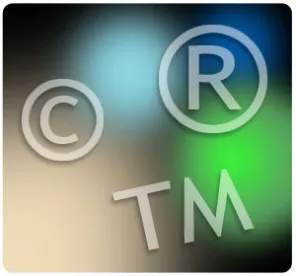Trademark rights fall into two categories – common law and federally registered trademark rights. Even though you may not have consciously made this distinction, it is likely you have seen different trademark designations in the marketplace: ™ or ℠ and ®. While these symbols all refer to the claim of trademark rights, when used correctly, the ™ or ℠ symbols refer only to common law trademark rights, and the ® identifies federally registered trademark rights recorded with the United States Patent and Trademark Office (“USPTO”).
Common Law Trademark Rights
Since trademark rights in the United States are use-based, common law or unregistered trademark rights are obtained simply by using a trademark in association with the provision of goods or services. No application process or payment of fees is required to acquire common law trademark rights. The owner of common law trademark rights used in connection with the provision of goods may use the ™ symbol, and the ℠ may be applied if the mark is used in connection with the owner’s provision of services.
Although common law trademark rights are easier to attain than federally registered rights, an owner’s trademark rights in an unregistered mark extend only to the geographic areas where the mark is actually used and other locales where the owner’s use of the mark would naturally extend. In contrast, a registered trademark often provides for national protection across the United States and is not limited to those geographic areas where the trademark is used.
Generally, common law trademark rights afford owners much less protection than that provided to owners of federal registrations.
Additional Benefits of Federally Registered Trademarks
Federal registration for a trademark may be provided only by the USPTO, and only via a lengthy application process. While payment of fees to the USPTO, and likely to the attorney prosecuting your trademark application, is required to register a trademark and maintain that registration, a federal registration in turn carries with it numerous benefits that common law trademarks cannot offer.
Along with use of the ® symbol, which puts everyone, including potential infringers, on notice that the mark is federally registered, a registered trademark can achieve “incontestable” status. An incontestable trademark is one that has been registered and in use for five years, and it serves as conclusive evidence regarding the validity and registration of the trademark, as well as the owner’s ownership and exclusive right to use the trademark in connection with the registered goods and services. While an incontestable trademark is not invincible and is still vulnerable to certain challenges, incontestable status often deters potential infringers as it limits the defenses that may reasonably be raised in a trademark dispute.
If a formal lawsuit is initiated, federal registration provides the trademark owner with a jurisdictional hook to litigate its trademark and related claims in federal court rather than state court. A federal court offers procedural and other advantages to a trademark owner party plaintiff that are not available in state court. A plaintiff who is the owner of a federally registered trademark also has additional remedies available to it compared to a plaintiff who owns only common law trademark rights. These remedies may include monetary damages such as disgorgement of the infringer’s profits, statutory damages, and punitive damages. Common law trademark rights provide limited regional protections to one’s business. Investing in your brand by strengthening common law rights with a federal registration allows your trademark to become an even more valuable asset to the business.




 />i
/>i
